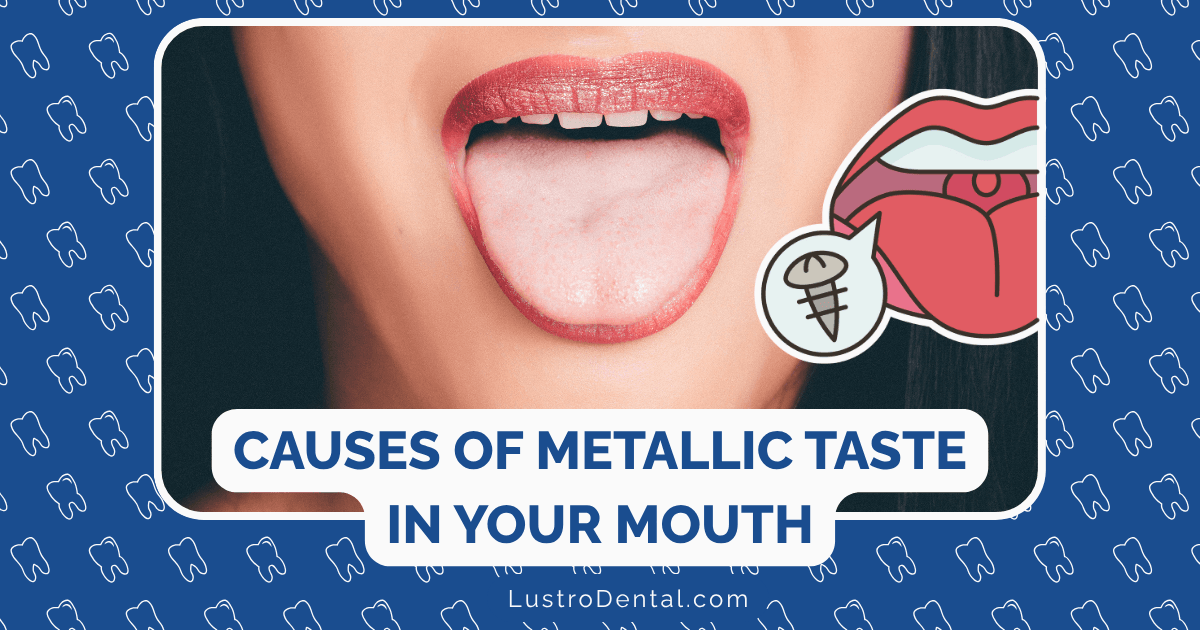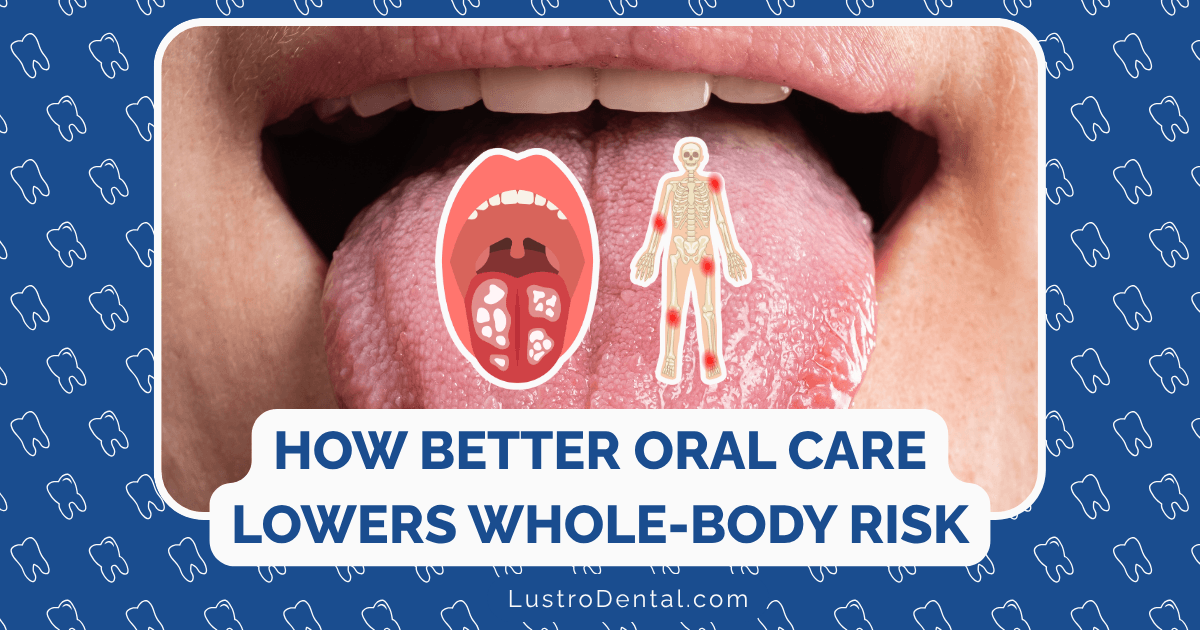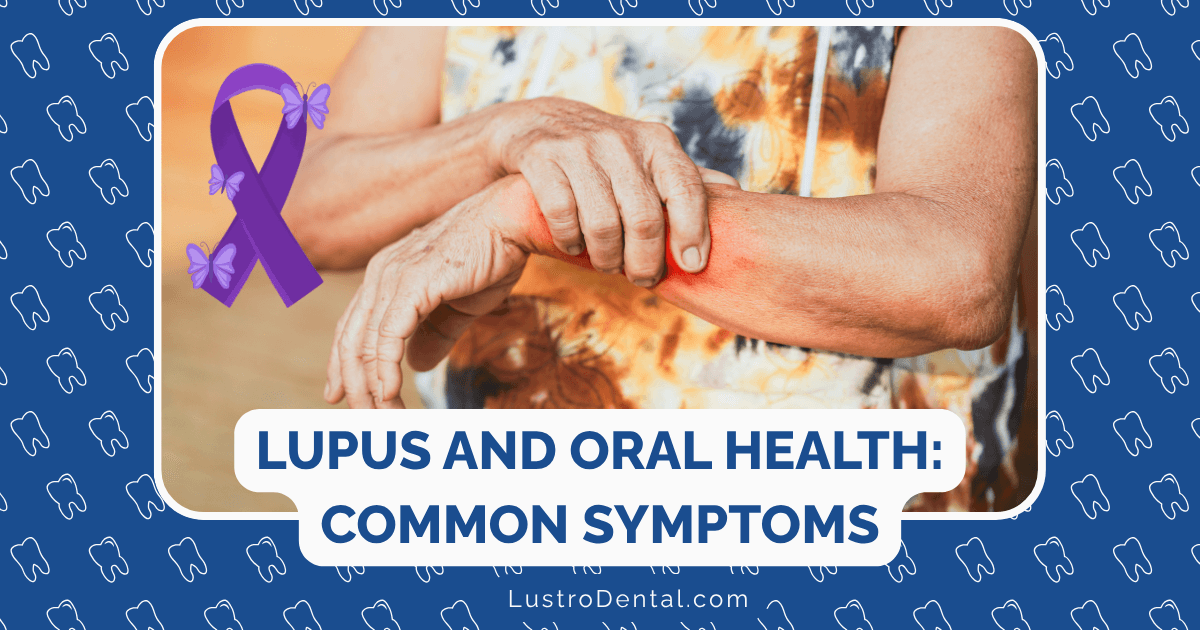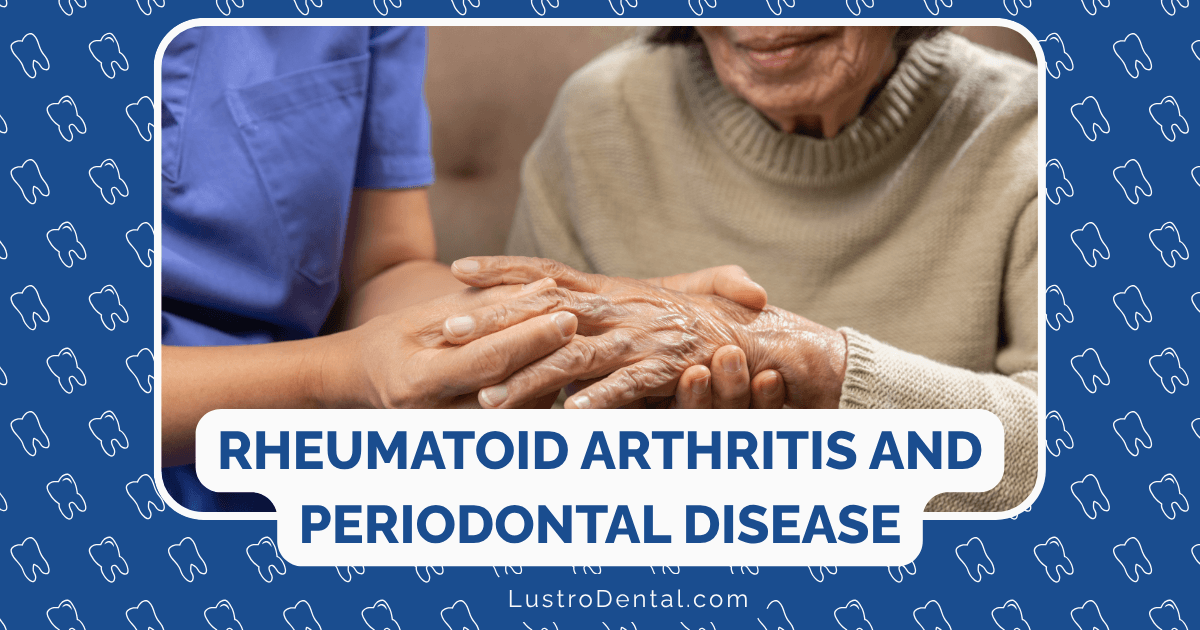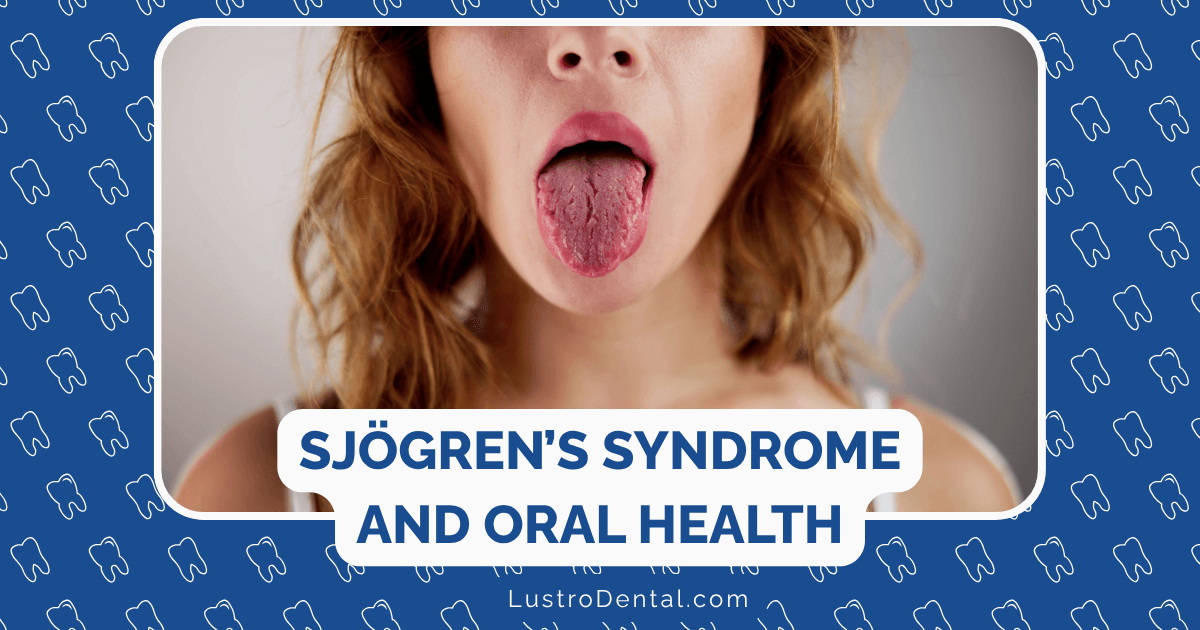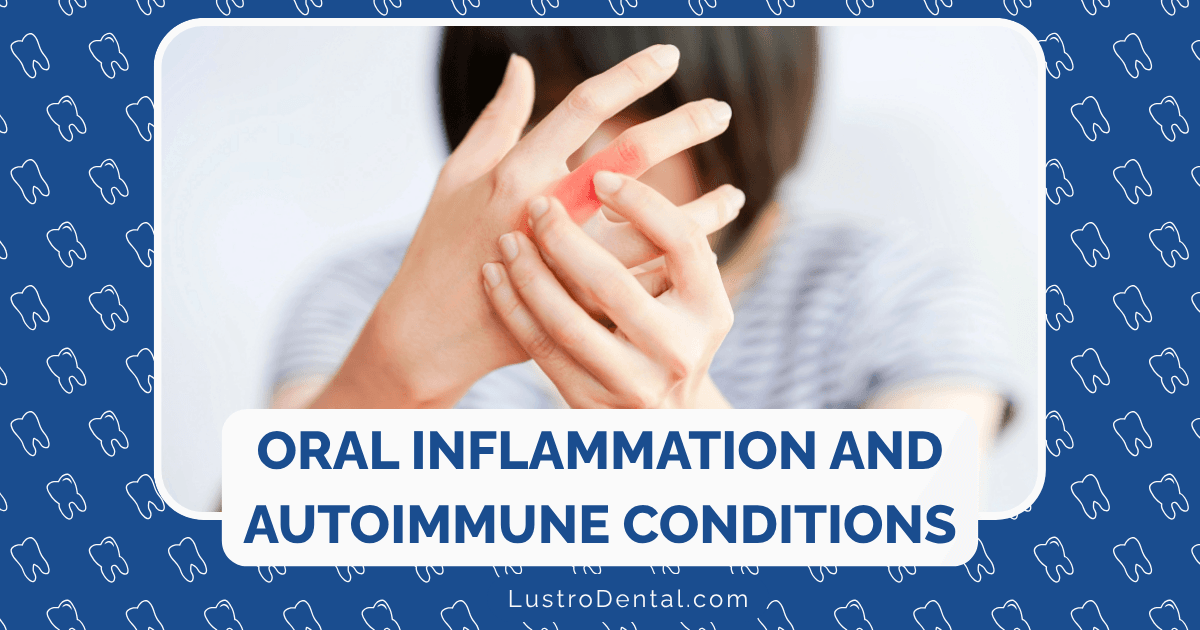Managing Oral Side Effects of Diabetes Medications
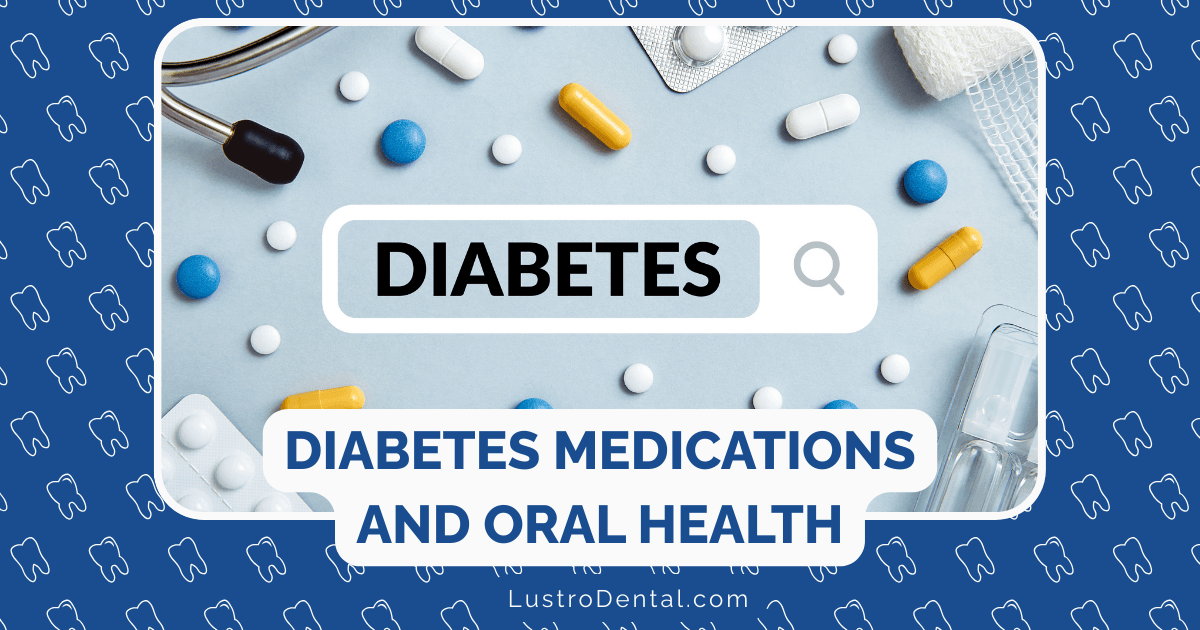
Diabetes medications are essential for managing blood glucose levels and preventing complications, but they can sometimes come with unwanted side effects—particularly those affecting oral health. From dry mouth to taste changes, these side effects can range from mildly annoying to significantly impacting quality of life and even compromising dental health.
Understanding these potential oral side effects and knowing how to manage them effectively can help you maintain both your diabetes control and your oral health. Let’s explore the most common oral side effects of diabetes medications and practical strategies to address them.
Common Oral Side Effects of Diabetes Medications
Xerostomia (Dry Mouth)
Dry mouth, or xerostomia, is one of the most prevalent oral side effects of diabetes medications. It occurs when salivary glands don’t produce enough saliva, leaving your mouth feeling parched and uncomfortable.
“Xerostomia isn’t just uncomfortable—it can significantly increase the risk of tooth decay, gum disease, and oral infections,” explains Dr. Sarah Johnson, endocrinologist at Mayo Clinic. “Saliva plays a crucial role in neutralizing acids, washing away food particles, and preventing bacterial overgrowth in the mouth.”
According to a recent study from the National Institutes of Health, more than 400 medications can cause dry mouth, with several diabetes medications among them.
Taste Disturbances (Dysgeusia)
Changes in taste perception, known medically as dysgeusia, can manifest as a metallic, bitter, or salty taste in the mouth, or as a decreased ability to taste foods properly.
“Taste disturbances can significantly impact nutritional intake and quality of life,” notes Dr. Michael Chen, dental specialist in diabetes care. “When food doesn’t taste right, patients may alter their eating habits, potentially affecting their blood glucose control.”
Oral Infections
Some diabetes medications, particularly SGLT2 inhibitors, can increase the risk of certain infections, which may manifest in the oral cavity.
Gingival Hyperplasia (Gum Overgrowth)
Though less common with newer diabetes medications, some can contribute to gingival hyperplasia—an overgrowth of gum tissue that can make oral hygiene difficult and lead to further oral health problems.
Stomatitis (Mouth Sores)
Inflammation of the mucous lining of the mouth, resulting in painful sores or ulcers, can occur with certain diabetes medications.
Specific Medications and Their Oral Side Effects
Different classes of diabetes medications can cause varying oral side effects. Understanding which side effects are associated with your specific medication can help you anticipate and manage them effectively.
Metformin
As the first-line medication for Type 2 diabetes, metformin is widely prescribed and generally well-tolerated, but it can cause:
- Metallic taste: According to the National Center for Biotechnology Information, up to 3% of patients on metformin report a metallic taste.
- Dry mouth: Though less common than with other medications, metformin can reduce saliva production in some individuals.
- Vitamin B12 deficiency: Long-term use can lead to vitamin B12 deficiency, which may manifest as glossitis (inflammation of the tongue) or oral soreness.
Dr. Elizabeth Wong, pharmacist specializing in diabetes care, advises: “Taking metformin with meals can help reduce gastrointestinal side effects, including those affecting taste. Extended-release formulations may also cause fewer side effects for some patients.”
GLP-1 Receptor Agonists
These injectable medications (like semaglutide, dulaglutide, and liraglutide) and their oral counterparts have gained popularity for their efficacy in blood glucose control and weight management, but they can cause:
- Dry mouth: A 2024 survey reported by United Concordia found that 12% of U.S. adults reported taking a GLP-1 drug, with dry mouth being a common side effect.
- Nausea and vomiting: These side effects can lead to dehydration and reduced saliva production.
- Taste changes: Some patients report altered taste perception, particularly in the early weeks of treatment.
“GLP-1 receptor agonists slow gastric emptying, which contributes to their effectiveness for weight loss but can also lead to nausea and associated oral symptoms,” explains Dr. Johnson. “These effects typically improve over time as the body adjusts to the medication.”
SGLT2 Inhibitors
Sodium-glucose cotransporter-2 (SGLT2) inhibitors like empagliflozin, dapagliflozin, and canagliflozin work by preventing the kidneys from reabsorbing glucose. Their oral side effects include:
- Dry mouth and increased thirst: Due to their diuretic effect, these medications can cause dehydration and subsequent dry mouth.
- Oral candidiasis (thrush): The increased glucose in urine can create an environment conducive to fungal growth, including in the mouth.
“SGLT2 inhibitors can cause a generalized state of mild dehydration due to increased urination,” notes Dr. Robert Thompson, diabetes educator. “This can manifest as dry mouth and increased thirst, which patients often mistake for high blood sugar symptoms.”
Sulfonylureas
These older but still commonly used medications (like glipizide and glyburide) stimulate insulin release from the pancreas and may cause:
- Taste disturbances: According to WebMD, medications like glipizide can alter taste perception.
- Hypoglycemia: Low blood sugar episodes can indirectly affect oral health by causing confusion that might impact oral hygiene routines.
DPP-4 Inhibitors
Generally well-tolerated, DPP-4 inhibitors (sitagliptin, linagliptin, etc.) have fewer oral side effects compared to other classes, but some patients still report:
- Mild dry mouth: Less common than with other diabetes medications
- Occasional taste disturbances: Typically mild and transient
Managing Oral Side Effects: Practical Strategies
For Dry Mouth (Xerostomia)
- Stay hydrated: “Water is the simplest and most effective first-line treatment for medication-induced dry mouth,” advises Dr. Chen. “Carrying a water bottle and sipping throughout the day can provide significant relief.”
- Use saliva substitutes: Over-the-counter artificial saliva products can temporarily relieve dry mouth symptoms. Look for alcohol-free formulations that contain xylitol, which may help prevent tooth decay.
- Try sugar-free gum or mints: Chewing sugar-free gum or sucking on sugar-free mints stimulates saliva production. Products containing xylitol have the added benefit of helping prevent cavities.
- Use a humidifier: Running a humidifier in your bedroom at night can help prevent your mouth from drying out while you sleep.
- Consider prescription options: For severe dry mouth, prescription medications like pilocarpine (Salagen) or cevimeline (Evoxac) can stimulate saliva production. According to the NIH, these medications are FDA-approved for xerostomia treatment, with typical dosing of pilocarpine at 5-10 mg three times daily.
- Avoid irritants: Alcohol (including alcohol-based mouthwashes), caffeine, tobacco, and spicy or acidic foods can worsen dry mouth symptoms.
For Taste Disturbances (Dysgeusia)
- Experiment with seasonings: “When medications alter taste, adding herbs, spices, or a squeeze of lemon to foods can help enhance flavors without adding sugar or salt,” suggests Dr. Thompson. “Experiment to find what works for your altered taste perception.”
- Practice good oral hygiene: Brushing your tongue gently when you brush your teeth can help remove bacteria that may contribute to taste disturbances.
- Stay hydrated: Adequate hydration helps maintain the proper function of taste buds.
- Try zinc supplements: Some studies suggest zinc supplements may help improve taste disturbances, but consult your healthcare provider before starting any supplement.
- Consider medication adjustments: If taste changes significantly impact your quality of life or nutrition, discuss with your healthcare provider whether adjusting your medication dosage or switching to an alternative might help.
For Preventing Oral Infections
- Maintain meticulous oral hygiene: Brush twice daily with fluoride toothpaste, floss daily, and use an antimicrobial mouthwash if recommended by your dentist.
- Stay hydrated: Proper hydration helps maintain the protective functions of saliva.
- Monitor for early signs of infection: Watch for white patches on the tongue or inside the cheeks (possible thrush), unusual redness, or painful areas in the mouth.
- Regular dental check-ups: “Patients taking diabetes medications should consider more frequent dental visits—perhaps every three to four months rather than the standard six months,” advises Dr. Chen. “This allows for early detection and management of any developing issues.”
Special Considerations for GLP-1 Receptor Agonists
With the growing popularity of GLP-1 receptor agonists for diabetes management and weight loss, special attention to their oral side effects is warranted.
Managing Nausea and Vomiting
- Take with food: Some patients find that taking these medications with food helps reduce nausea.
- Start low, go slow: Following the prescribed gradual dose escalation schedule can help minimize gastrointestinal side effects.
- Protect your teeth: If vomiting occurs, rinse your mouth with water afterward but avoid brushing immediately, as stomach acid weakens enamel and brushing too soon can damage it.
- Stay hydrated: Replace lost fluids to prevent dehydration and associated dry mouth.
Addressing Nutritional Concerns
- Work with a dietitian: A registered dietitian can help ensure you’re getting adequate nutrition despite potential appetite changes or food aversions.
- Consider smaller, more frequent meals: This approach may be better tolerated than three larger meals.
- Monitor vitamin and mineral levels: Regular blood tests can help identify any deficiencies that might affect oral health.
The Role of Dental Professionals in Managing Medication Side Effects
Regular dental care is crucial for patients taking diabetes medications. A 2025 initiative by Delta Dental of Arizona and PDS Health highlights the importance of integrating dental and medical care for diabetes management.
What to Tell Your Dentist
Be sure to inform your dental team about:
- All medications you’re taking, including over-the-counter drugs and supplements
- Any changes in your medication regimen since your last visit
- Specific oral symptoms you’re experiencing
- Your most recent HbA1c level and overall diabetes control
“Dentists can often modify treatment plans to accommodate medication side effects,” explains Dr. Wong. “For example, scheduling shorter appointments for patients with dry mouth or recommending specific products to address their unique needs.”
Preventive Dental Care
For patients taking diabetes medications, preventive care becomes even more important:
- Professional cleanings: Consider more frequent cleanings, especially if you have dry mouth or are at higher risk for gum disease.
- Fluoride treatments: Professional fluoride applications can help prevent cavities, particularly important for those with reduced saliva.
- Custom trays: Your dentist might recommend custom trays for at-home fluoride application.
- Sealants: Dental sealants can provide additional protection against decay for patients at high risk.
When to Consult Your Healthcare Provider
While many oral side effects can be managed with the strategies outlined above, certain situations warrant contacting your healthcare provider:
- Severe dry mouth that significantly impacts eating, speaking, or quality of life
- Persistent taste disturbances that affect your nutrition or enjoyment of food
- Signs of oral infection (white patches, unusual redness, pain)
- Mouth sores that don’t heal within two weeks
- Any new or worsening oral symptoms after starting or changing diabetes medications
“Open communication between patients, their endocrinologists, and their dental providers is essential for optimal management of diabetes medication side effects,” emphasizes Dr. Johnson. “Don’t hesitate to reach out if you’re experiencing troublesome symptoms.”
The Future of Managing Oral Side Effects
Research in this area continues to evolve, with promising developments on the horizon:
- Artificial saliva advancements: Newer formulations with improved moisturizing properties and longer-lasting effects
- Medication delivery systems: Novel delivery methods that may reduce side effects
- Personalized medicine approaches: Genetic testing to predict which patients are more likely to experience specific side effects
- Integrated care models: Better coordination between medical and dental providers, as highlighted in the 2025 Standards of Care in Diabetes
Conclusion: Balancing Medication Benefits and Side Effects
Managing diabetes effectively requires finding the right balance between the benefits of medications and their potential side effects. When it comes to oral side effects, being proactive about prevention and management can make a significant difference in your comfort and overall health.
Remember that most oral side effects are manageable with proper care and attention. By working closely with both your diabetes care provider and your dental team, you can develop a personalized strategy to maintain good oral health while keeping your diabetes under control.
Don’t let concerns about side effects prevent you from taking necessary medications—instead, arm yourself with knowledge and strategies to address these effects if they occur. With the right approach, you can enjoy the benefits of improved glucose control while minimizing the impact on your oral health and quality of life.
Are you experiencing oral side effects from your diabetes medications? Share your experiences and management strategies in the comments below.


